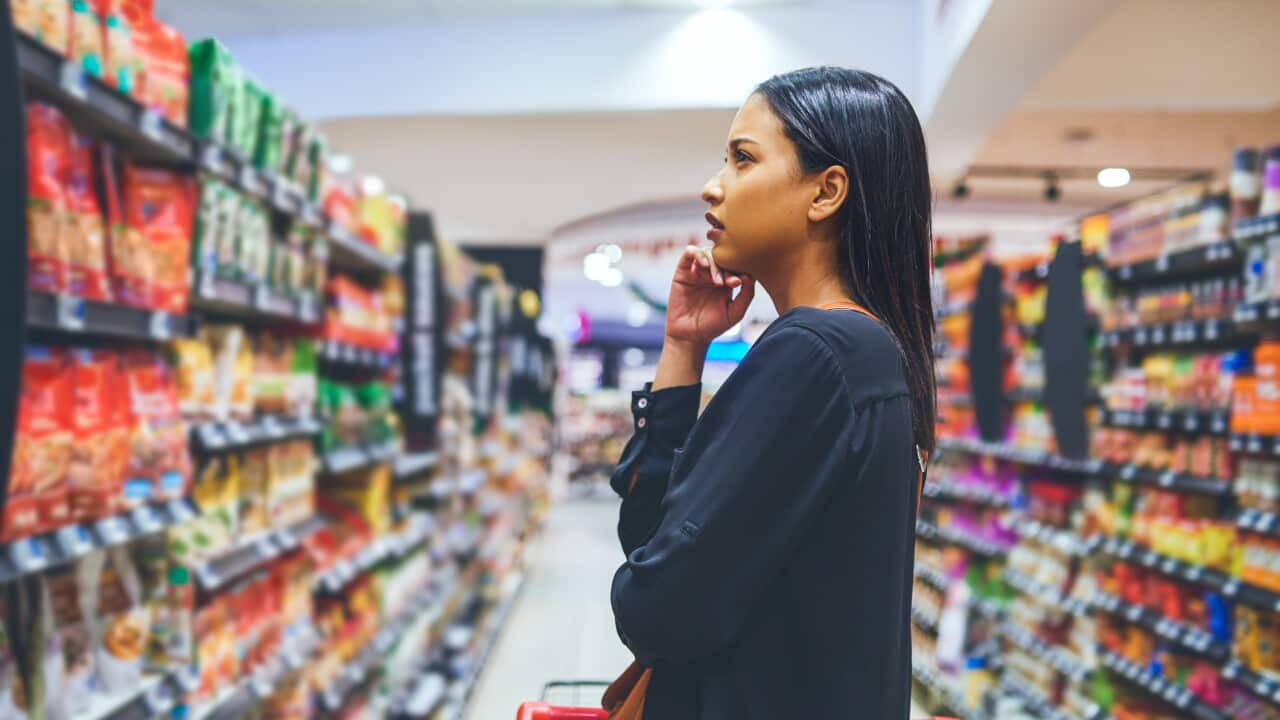The election debate you'll actually want to watch: The Feed's political debate between some of Australia's most well-known young political influencers can be streamed now on .
This election campaign, according to Andrew Hughes, political marketing researcher at the Australian National University, is: "The most boring campaign I've seen."
"If you watched the second leaders' debate, the biggest feedback I had from most people I talked to who aren't political experts, so to speak, was how dry it was."
This, he says, is one of the reasons why people want to hear from influencers.
"We go, 'finally, someone's not following the script.'"
In the lead-up to the federal election, The Feed brought together six of Australia's most well-known and passionate young political commentators to talk about the issues on the minds of voters. These influencers might usually be seen in the algorithms of followers who have a similar opinion.
"That's one of the disadvantages of algorithms when it comes to political communications and content," Hughes says.
"We're never going to see the complete picture. We want to understand there's other perspectives out there."
Horse manure in the 1800s
The Feed debate tries to break down those algorithm silos by bringing content creators together to challenge one another's ideas.
With a million followers between these six commentators on Instagram and 800,000 or so on TikTok, the panellists have done what politicians are trying to do — capture a youth audience.
On the panel was Abbie Chatfield (podcaster, Greens supporter), Konrad Benjamin who is better known as 'Punter’s Politics' (podcaster, unaligned, and whose catchphrase is 'policy over party'), Hannah Ferguson (Cheek Media co-founder, Greens member and Teals supporter), Freya Leach (policy maker at the Liberal-affiliated Menzies Research Centre, Liberal member), Joel Jammal (Turning Point Australia founder, conservative libertarian) and Trisha Jha (researcher at the Centre of Independent Studies, centre-right commentator, not a content creator).
Coming out of your social media feeds and into one studio, they debated whether Australia is doing enough to combat climate change, if nuclear should be part of Australia’s energy future, the merits of using superannuation to buy a house, whether immigration should be cut, student debt and even horse manure in the 1800s (you’ll have to watch the debate to hear more about this one).
From podcasts to brainrot, candidates are trying to capture the attention of young voters
In this campaign, candidates have tried to capture the youth vote. From 'brainrot' videos, to appearing on the podcasts of Chatfield, Ferguson and Punter’s Politics, to for the first time earlier this year.
The shift in campaigning has led to influencers and politicians figuring things out as they go.
Clips of Chatfield's interviews with Greens leader Adam Bandt and Prime Minister Anthony Albanese were reviewed by the Australian Electoral Commission (AEC) after Liberal senator Jane Hume questioned if they had breached electoral rules by not including an authorisation statement.
The posts were cleared of breaching any laws, with the AEC finding no evidence that the podcaster had been paid for any political posts, or that Albanese or Bandt had any creative control in the interviews.
Concerns of young Australians shifting
While climate change has long been a major issue for young people, Mission Australia's youth survey, , found that young people's main concern had shifted from climate change to the cost of living. But climate anxiety still remains a major concern.
In a discussion about whether Australia is doing enough to combat climate change, Joel Jammal, a conservative libertarian, said to a sea of mixed facial expressions: "In terms of 'is Australia doing enough to combat climate change?' We're doing far too much."
Abbie Chatfield, bemused at the response, asked: "What reality are you living in?" while Freya Leach said the discussion around climate was too fearmongering.
"We have frequently faced these kinds of like civilisational moments where it looks like everything is going to implode and then we have innovated our way out of it," she told the group.
‘Punter’s Politics’ asked the panellists to consider the "scapegoating" of renewables around the cost of a transition in the climate debate and instead shift the blame to the one in three massive corporations in Australia who are not paying tax.
"The climate debate becomes both a virtue signal for large corporations to pretend they're doing something and it becomes a scapegoat for every problem in our society," he said.
"The thing that I will forcefully inject into here is that the reason why Australia is suffering with living standards, cost of living, housing, energy, is because there is a set of corporate bludgers who are leeching off the taxpayer in Australia."
While the panel clashed on how much property investors are impacting the housing market, they agreed that a lower barrier to entry is needed for young people trying to get into the property market.

With young voters set to overtake the 'boomer' vote for the first time this federal election, politicians have looked to influencers more than ever before.
Political influencers here to stay
Political marketing researcher Andrew Hughes says, whether you like what they’re saying or not, it must be acknowledged that people have these platforms, and it’s important to break out of the pockets that algorithms create and be challenged.
"Algorithms make it very, very hard to find that information because they're thinking, 'hang on, you don't like this stuff, you're not really watching this a lot, then you're going to see less of it,'" he said.
"It reinforces your thinking. It doesn't challenge it. And that's something we need to really consider ... We want to understand, there are other perspectives out there."
Having observed several political campaigns over the years, Hughes says there’s been a bit of a shift this election.
"I don't think there's a moral panic anymore," he said.
"We understand there's a place for them and they have a role and that role is to feed the debate and have a different perspective to what we may normally hear in a discussion.
"In a way, it might actually speed up some of these issues which are on the fringe, which struggle for airtime and only get it every three years when there's an election campaign on, now courtesy of influencers who may pick it up as their issue."




